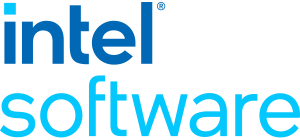
Intel created a product implementation of oneAPI with the Intel® oneAPI Toolkits , which help developers efficiently build, analyze, and optimize high-performance, cross-architecture applications for Intel CPUs, GPUs and FPGAs.
• The Intel® oneAPI Base Toolkit is a core set of tools including best-in-class compilers, powerful performance libraries, and analysis and debug tools.
• Segment-specific Toolkitsaid developers in optimizing applications and solutions for HPC, AI, IoT, and rendering. For the latest news and updates visit Intel oneAPI News.
Note: The tools that comprised Intel® Parallel Studio XE and Intel® System Studio are now integrated into Intel’s oneAPI Products.
The Intel oneAPI toolkits are upward compatible supersets of the features in the previous studio products, so the studio products will no longer be offered to new customers in 2021.
oneAPI
is an industry initiative creating an open, standards-based, cross-architecture programming model to simplify development for
a wide range of data-centric workloads across a variety of architectures (CPU, GPU, FPGA, and other accelerators).
It includes a cross-architecture language Data Parallel C++ (based on ISO C++ and Khronos Group’s SYCL), advanced libraries, and community extensions.
Many companies, research organizations, and universities support oneAPI.
Stay updated at oneapi.com/news.
